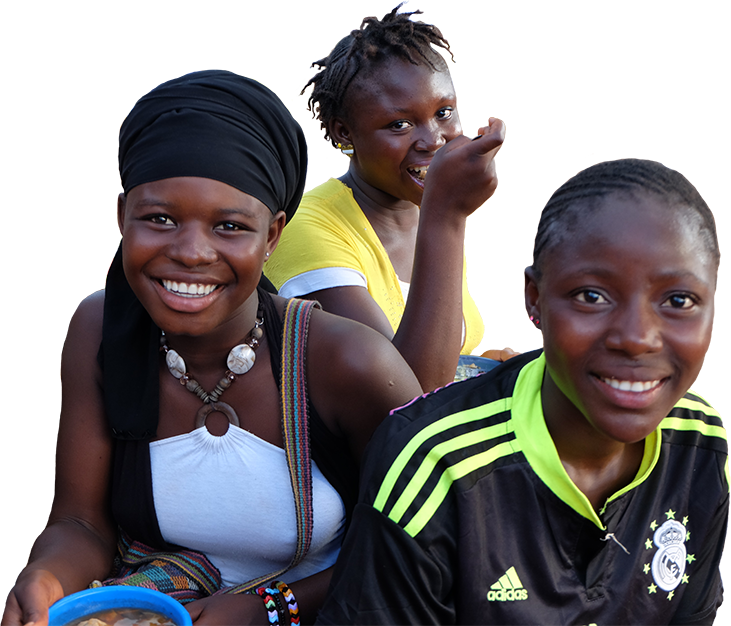Formative research helps us understand the challenges and opportunities that adolescents face, as well as barriers and enablers to behavior change. Routine monitoring is needed to assess progress toward program goals and national targets. Implementation research and evaluations are needed to identify effective approaches. The Adolescent Nutrition Resource Bank includes a variety of protocols and tools for monitoring, evaluating, and researching adolescent nutrition. If you have relevant monitoring, evaluation, or research resources, please send them to info@advancingnutrition.org.
We found 128 resource(s)
Weekly Iron and Folic Acid Supplementation and Nutrition Education for Adolescent Girls
Journal Article published by Emergency Nutrition Network (ENN) in
This article summarizes the activities carried out by Nutrition International in six countries with a high burden of anemia in adolescent girls. The program collaborated with governements in various countries and facilitated weekly implementation of iron folic acid supplementation.
Formative Research Guidance for Adolescent Nutrition
Guideline/Guidance published by USAID Advancing Nutrition in
USAID Advancing Nutrition developed this guidance outlining key considerations for conducting formative research on nutrition behaviors with adolescents. Involving adolescents in designing programs and efforts to inform policy empowers them to make decisions about their own well-being and ensures the applicability of results in communities.
State of the World's Children (SOWC) 2019 Adolescents' Workshop Manual and Nutrition Specialist Field Guide
Training Material published by UNICEF, Western Sydney University in
In 2019, UNICEF, in partnership with Western Sydney University, conducted a series of workshops with adolescents to learn about how they perceive, access, and consume food. The facilitator's manual outlines the process that in-country partners followed to organize and implement the workshops, and includes planning checklists, activities,…
Adolescent Nutrition Interventions Through School-Based and Community Platforms
Brief published by Alive & Thrive, IFPRI in
This document presents highlights from the a baseline survey (2019) in 2 regions of Ethiopia. Dietary diversity was low and food insecurity was common. The study also found that ~30% of adolescent girls missed 1+ days of school in the prior week. Adolescents received limited exposure to nutrition messages at school and in their communities.
Raising the Profile of Adolescent Nutrition in Pakistan: Learnings on the Journey from Policy to Action
Guideline/Guidance published by GAIN in
This working paper describes lessons learned throughout the development of the Pakistan Adolescent Nutrition Strategy (PANS). The paper utilizes the Innocenti Framework on Food Systems for Children and Adolescents to guide the implementation of PANS and to understand the determinants of adolescent nutrition, specifically trends in consumption,…
Factors influencing obesogenic behaviours of adolescent girls and women in low- and middle-income countries: A qualitative evidence synthesis
Literature Review published by Academic Journal in
This systematic review synthesized the qualitative evidence from the peer-reviewed literature on factors influencing obesogenic behaviours in adolescent girls (age 10-19) and women of reproductive age (15-49 years of age) in low- and middle-income countries (LMICs). The review included 71 studies from 27 different countries; about half of the…
Sex- and Gender-Based Analysis (SGBA): A Toolkit for Nutrition Programs
Guideline/Guidance published by Nutrition International in
This toolkit is intended to guide the development and implementation of sex- and gender-based analysis (SBGA) within nutrition programs. It is based on the premise that women's empowerment and improved nutrition are mutually reinforcing and that addressing underlying gendered barriers and constraints will improve nutritional outcomes in…
Adolescent profile: Current non-communicable diseases (NCDs) trends and risk factors affecting adolescents in Indonesia
Information, Education and Communication Materials published by UNICEF in
This infographic summarizes the health status of adolescents in Indonesia (10-19 years). The report highlights trends in nutritional status, tobacco use, and mental health issues and their impact on adolescent morbidity and mortality. The adolescent health profile also explores the impact of the COVID-19 pandemic on adolescents in Indonesia,…



